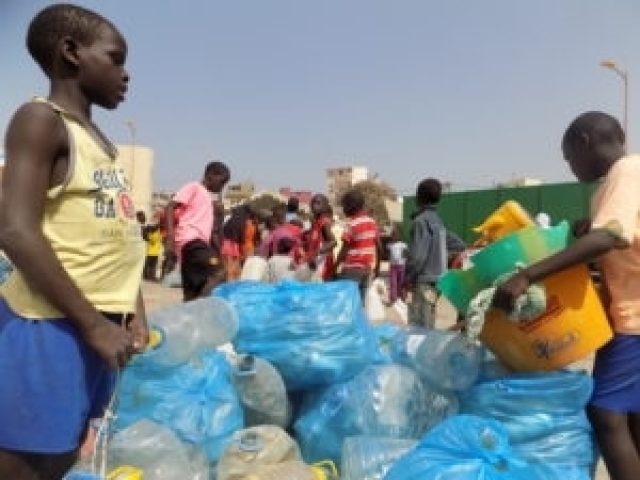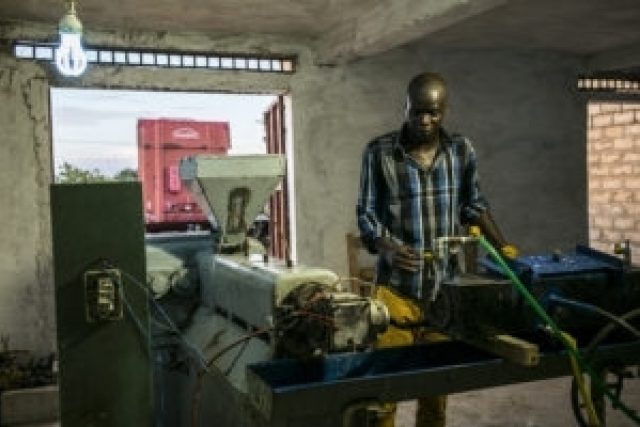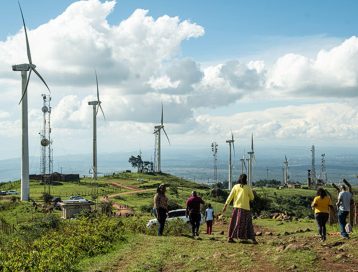Greening Plastics in Senegal
Major issues such as waste management, environmental degradation and rising demand for food dominate the political agenda in the African country of Senegal. The Greening Plastics project focuses on the interaction between all these areas. The project contributes to a cleaner environment by collecting plastic and then melting it to produce simple drip-irrigation systems. In turn, these systems will make the work of local farmers more ‘climate-proof’ by saving water and improving crop yields.
Recycling and Passive Sampling
Like many other African countries, Senegal has a problem with large amounts of rubbish. The country is collecting more and more plastic. As a result, recycling is increasing rapidly. In the Greening Plastics project, Deltares is looking at whether agricultural equipment such as irrigation pipes can be made from recycled plastic.

The Greening Plastics project, which was launched in October 2016, will continue for a total of two years. Passive Sampling is applied to monitor water and soil quality in locations where recycled irrigation kits are used. In the Greening Plastics project, Deltares is looking at whether agricultural equipment such as irrigation pipes can be made from recycled plastic. In addition, there is also potential for the further development of the method so that it can be applied more widely in developing countries.
Passive samplers have numerous advantages. They are easy to use, cheap and can be used anywhere. Of course, the samples still have to be analysed in a laboratory. But when there are large numbers, the costs are not as high as might be expected and it is no longer necessary to send expensive professionals into the field with complex measuring equipment. This makes passive sampling ideal for measuring environmental quality in developing countries because everyone can take samples.
Waste management

Greening Plastics is funded by ViaWater, a funding program of the Ministry of Foreign Affairs for innovative solutions to water problems in African cities. Partners are Lvia, an Italian NGO that has been involved in waste management in Senegal for a long time, and DMS, a local start-up that makes plastic products from recycled plastic.

